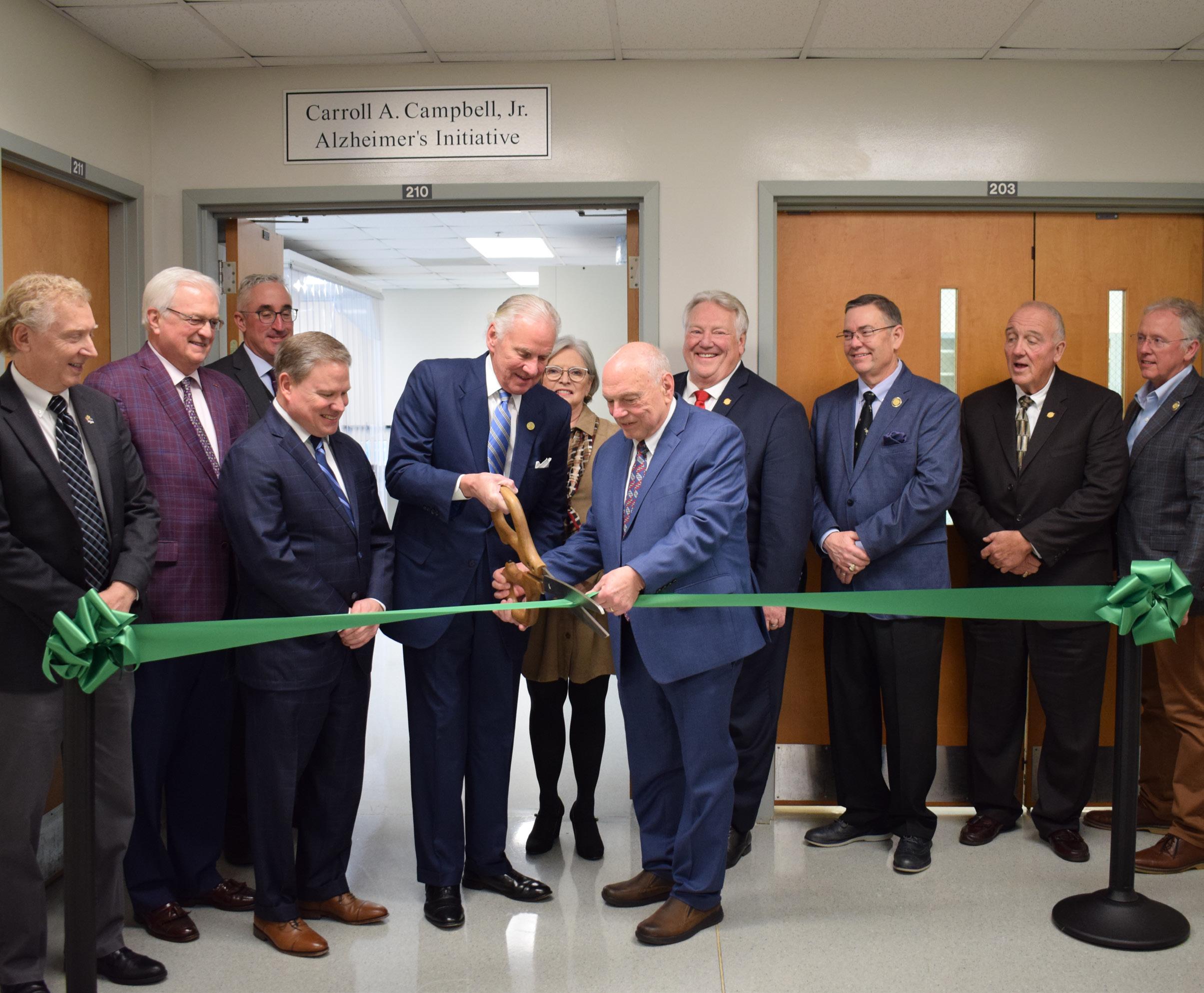
FOR FRIENDS OF THE GREENWOOD GENETIC CENTER Alzheimer's Initiative Begins Ribbon cutting held for collaborative project 02 10 compassion 06 inspires 03 progress SUMMER 2024 Care Reimagined Supports Families Project ECHO Improves Access 50 Years of GGC History
The Greenwood Genetic Center held a ribbon-cutting ceremony in January to mark the launch of the Carroll A. Campbell, Jr. Alzheimer’s Initiative.
At the heart of this transformative initiative is the BioSpherix Xvivo System in GGC’s McAlhany Family Center for Collaborative Research in Greenwood. This cutting-edge technology will allow researchers to isolate mitochondria from healthy donor cells and deliver them to patients with deficits of energy production in the brain. This mode of therapy, referred to as Mitochondria Organelle Transplantation (MOT TM), was developed by MitoSense and has the potential to not only revolutionize Alzheimer’s treatment but also holds implications for pediatric patients with rare diseases of mitochondrial dysfunction.
GGC is the exclusive organization in South Carolina—and one of the few in the United States—with the capability to generate and distribute these isolated mitochondria for pre-clinical research studies and eventual clinical trials.
The Carroll A. Campbell, Jr. Alzheimer’s Initiative, backed by a $2 million allocation from the SC state budget, represents a groundbreaking collaboration between GGC, MitoSense, and the U.S. Department of Veterans Affairs. This collaborative team will focus their efforts on cell- and animal-based studies to understand how transplanted mitochondria can enter damaged cells and restore their function.
“Over 95,000 individuals in South Carolina and nearly half a million American veterans are living with Alzheimer’s disease, and we predict a 26.3% increase over the next two years,” said Mark Kindy, PhD, Senior Research Career Scientist at James A. Haley Veterans’ Hospital. “GGC, MitoSense, and the VA are partnering on this exciting project to help understand the mechanisms associated with Alzheimer’s and develop potential therapeutic approaches to treat this devastating disease.”
“The ribbon-cutting event marks a pivotal moment in our dedication to Alzheimer’s research,” said GGC President and CEO, Dr. Steve Skinner. “The $2 million funding empowers us
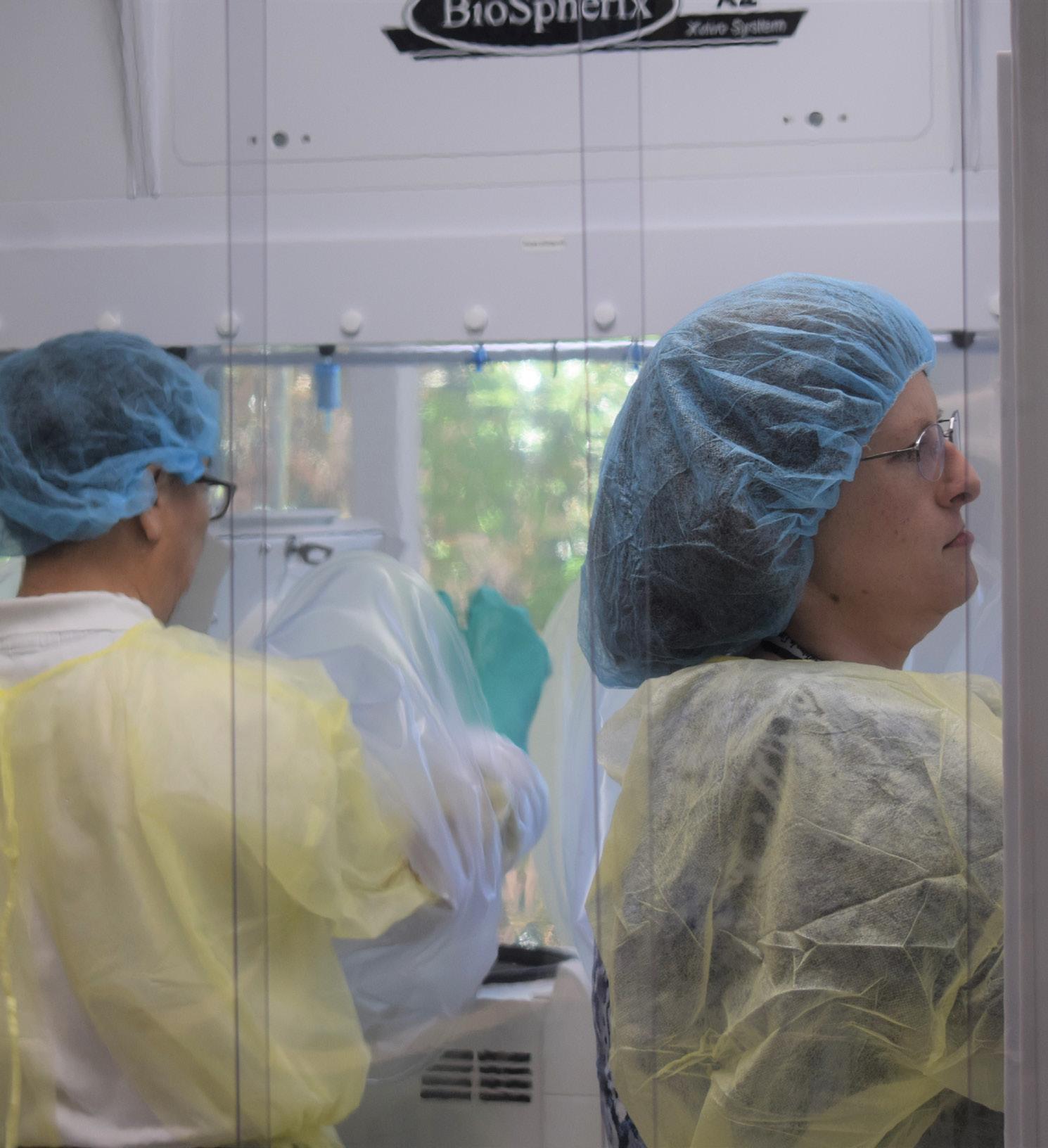
GGC Launches Carroll Campbell Alzheimer's Initiative
to explore groundbreaking approaches, and the acquisition of the BioSpherix Xvivo System is a testament to our commitment to advancing the development of treatments here in South Carolina.”
“It is an honor to be part of the ribboncutting event at Greenwood Genetic Center, a trailblazer of genetics in South Carolina and the cornerstone of our great state’s scientific and genetics community for 50 years,” said Governor McMaster. “The unveiling of the BioSpherix System marks a significant milestone in Alzheimer’s research and
“This ribbon-cutting is not just about opening doors to a new facility; it’s about unlocking the potential of groundbreaking research and turning it into actionable solutions.”
- Van Hipp, MitoSense Chairman
positions South Carolina as a leader in advancing this important science. I look forward to witnessing the impact of this new initiative and celebrating the continued success of Greenwood Genetic Center in the years to come.”
Greenwood Genetic Center Newsletter 2
Xianpeng Jiang, CLA, Chief Scientific Officer at MitoSense (left), and Rebecca Myers, PhD, Staff Scientist at GGC, complete their first isolation of mitochondria inside the BioSpherix system using donated adult stem cells.
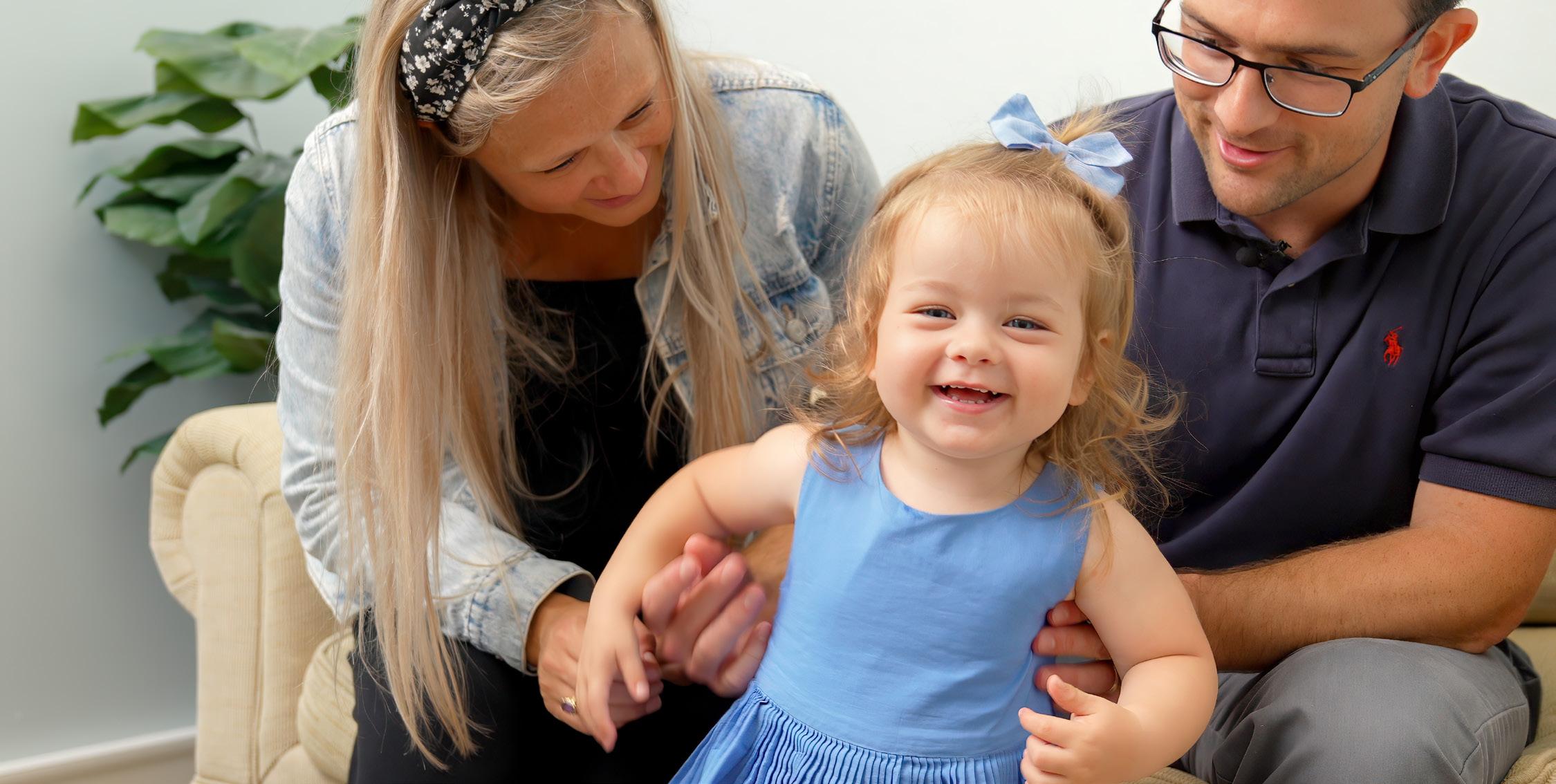
50 Years in the Making: A Yearlong Celebration of GGC's Golden Anniversary
Fifty years ago, the field of medical genetics was in its infancy when Roger Stevenson, MD, and Hal Taylor, PhD, founded GGC. While they could never have predicted the changes that would happen throughout their careers, they both knew that this field of study was something special - that it held the potential to provide diagnoses and treatments for diseases from the most rare of hereditary disorders to the most common of cancers.
GGC is celebrating its 50th anniversary in 2024, and all year long there will be celebrations of both GGC's rich history and the promise of an exciting future of technological advances, treatments, and cures for families impacted by genetic disorders.
THE EARLY YEARS:
A History of the Greenwood Genetic Center
This summer, a GGC exhibit will open at the Greenwood Museum and an 8' DNA double helix topiary named "Gene" will be introduced during the South Carolina Festival of Flowers.
A celebration for Friends of the Center is planned for this fall, coinciding with the date that Dr. Stevenson arrived in Greenwood in 1974.
You can also learn more about GGC's history and future plans by following the 'Then and Now" blog series at GGC.org/the-gene-scene or listening to the DNA Today podcast #279 on your favorite podcast platform.
GGC cofounders, Roger Stevenson, MD, and Hal Taylor, PhD, have coauthored a new book on the early history of GGC.
The Early Years tells the story of the Greenwood Genetic Center - from Stevenson and Taylor's first meeting as fellows at Johns
1974-2000
Hopkins through the origin, growth, and development of GGC into a world-renowned genetics organization. They detail the challenges and opportunities that led them to the small Southern town of Greenwood and share poignant and often humorous anecdotes,
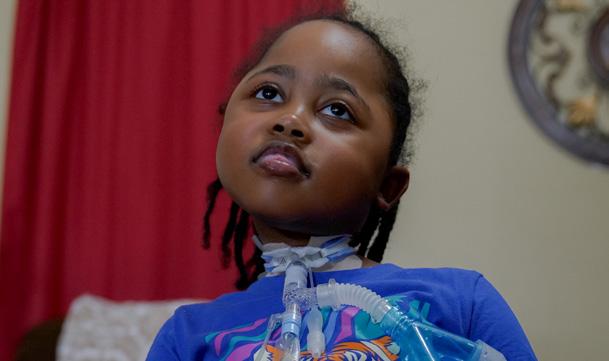
MEET OUR FAMILIES
See monthly video profiles of families who have found answers, treatments, and compassion from their encounters with GGC. Watch our social media accounts or visit our YouTube channel.

including critical lessons learned from patients and their families spanning the years 1974-2000.
You can read an excerpt from The Early Years and order your copy at GGC.org/TheEarlyYears.
3 Summer 2024 | www.GCC.org
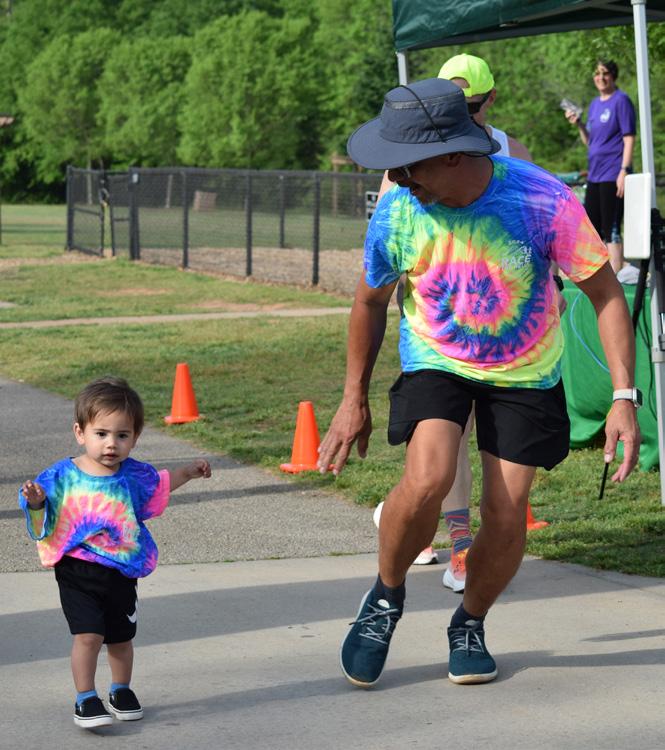
10 Years of Race the Helix in the Upstate
Race the Helix-Upstate celebrated its 10th anniversary in April with a successful 5K race and 1 mile run/ walk at Lake Conestee Nature Park in Greenville, SC. Participants donned tie-dyed t-shirts in honor of GGC's founding in 1974 while raising awareness and funds for the GGC Cares Fund.
Sponsor Support
Led by presenting sponsors, Bionano, Mutual of America, and Frank and Cathy Witney, businesses and individuals from across the state and around the world supported the event.
Cares
All proceeds from Race the HelixUpstate benefit the GGC Cares Fund which provides genetic care, testing, and treatments for patient who are uninsured or underinsured - providing equitable access for all.

Skinner Honored with the Order of the Palmetto
Governor Henry McMaster presented SC’s highest civilian award to GGC's President and CEO.
Steve Skinner, MD, President and CEO of the Greenwood Genetic Center, was presented with the Order of the Palmetto, SC’s highest civilian honor, by Gov. Henry McMaster in January.
Skinner joined GGC as a clinical genetics fellow in 1987. He has dedicated his medical career to serving patients and families impacted by genetic disorders, with a special interest in neurodevelopmental genetic disorders such as Rett syndrome, a condition in which he is recognized as an international expert.
support from the Center‘s Board of Directors, and leaders from Clemson University, the University of South Carolina School of Medicine, the Medical University of South Carolina, and Self Regional Healthcare –organizations with which Skinner has built and sustained close collaborations to benefit patients and families across South Carolina.
A highlight for many of the participants was the amazing cheesecake provided by Mak and Cheesecakes of Simpsonville. This GGC family-owned business was named in honor of Makai who has a rare form of dwarfism and autism and is followed by GGC.
Skinner was nominated for the Order of the Palmetto by Mike Friez, PhD, Director of the Diagnostic Laboratories at GGC, on behalf of the Center’s faculty and staff and with
“Dr. Skinner is the genuine article in terms of what a physician and leader should be,” said Friez. “He is compassionate and has great empathy for his patients, as well as those that follow his leadership. He is caring, humble, and a friend to everyone. He is never one to boast or seek credit for the incredible work he has done or the accomplishments he has achieved.”
Cheesecake, anyone? GGC
Greenwood Genetic Center Newsletter 4
Project Hope to Join GGC Partnership Campus
Autism service provider will build new facility on 12 acres adjacent to GGC.
Project Hope Foundation, a nonprofit organization offering a lifespan of services for the autism community, announced plans to open a new location on the 191-acre Greenwood Genetic Center Partnership Campus. They will be building a new Greenwood facility on a 12-acre parcel on Helix Road, adjacent to GGC and the Clemson Center for Human Genetics. The acquisition was unanimously approved in April by the GGC Foundation Board of Trustees.
“This is an incredibly unique opportunity to bring together two very important aspects of the autism journey: diagnosis and treatment,” says Susan Sachs, Co-Founder and Co-CEO of Project Hope Foundation. “Having the ability to collaborate with GGC in the same location, on the same campus, is really empowering.”
“GGC and Project Hope have a long history of collaboration and a shared mission to provide compassionate, cutting-edge care for individuals and families impacted by autism,” said Steve Skinner, MD, President and CEO of the GGC. “We are thrilled to have them on our campus as we expand our partnership to help expedite earlier
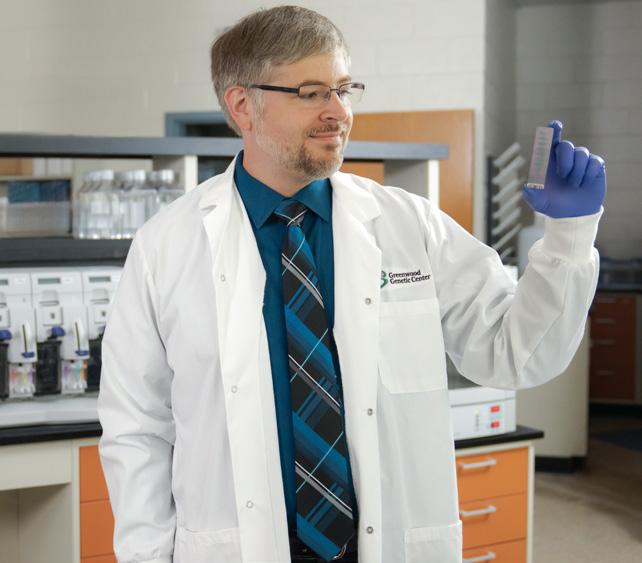
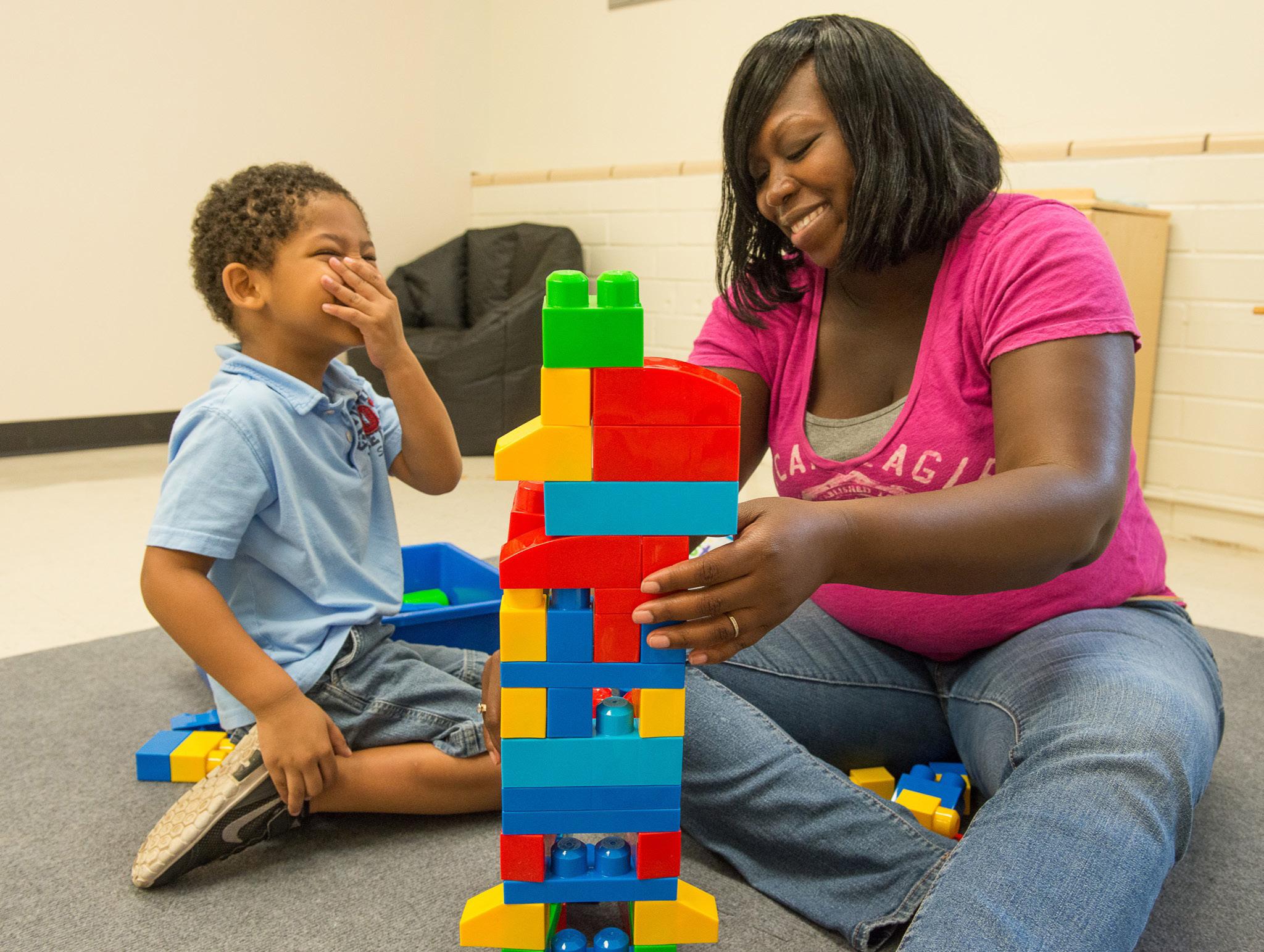
diagnoses, expand access to services, and work together on research and future clinical trial opportunities.”
“Receiving an autism diagnosis can be lonely and isolating, but it doesn’t have to be,” says Sachs. “Through this partnership, families who receive care from GGC can immediately walk over to see the work we do at Hope and the services we provide, giving them answers and encouragement soon after their child is diagnosed.”
The new building will be designed to meet the unique needs of Project Hope Foundation’s clients and staff. Building plans and the timeline for construction are still being finalized.

Microarray Milestone
GGC's Microarray lab reached a significant milestone in February with the completion of their 20,000th test.
Microarray technology allows for the identification of very small extra or missing pieces of genetic
material - pieces that are too small to be seen under the microscope.
"Our microarray team has worked so hard over many years to incorporate new technologies and workflows, including their vital contribution
to the first FDA-cleared microarray, CytoScan Dx, in 2014," said Barb DuPont, PhD, Senior Director of GGC's Cytogenetics Laboratory. "Their dedication has led to thousands of diagnoses that would not have been found by any other means."
5 Summer 2024 | www.GCC.org
Photo courtesy of Project Hope Foundation
Project ECHO to Enhance Provider Education
Project aims to enhance access to genetic expertise by bridging the knowledge gap between non-genetic providers and geneticists, fostering collaboration, and advancing patient care.
GGC launched an ECHO project –Extension for Community Healthcare Outcomes – in May. This unique initiative aims to provide ongoing, interactive education to non-genetics healthcare providers, equipping them with the knowledge and skills needed to integrate genetics into their medical practice.
Through the ECHO project, GGC is offering a series of virtual sessions providing continuing medical education (CME) credits for healthcare providers through the Medical University of South Carolina Office of Continuing Education. Scheduled every other month, starting in May, the sessions will feature different GGC experts covering a variety of topics in medical genetics. The format includes multimedia presentations, case examples, and discussions, encouraging providers to actively participate and share their own cases.
Utilizing the Project ECHO model,
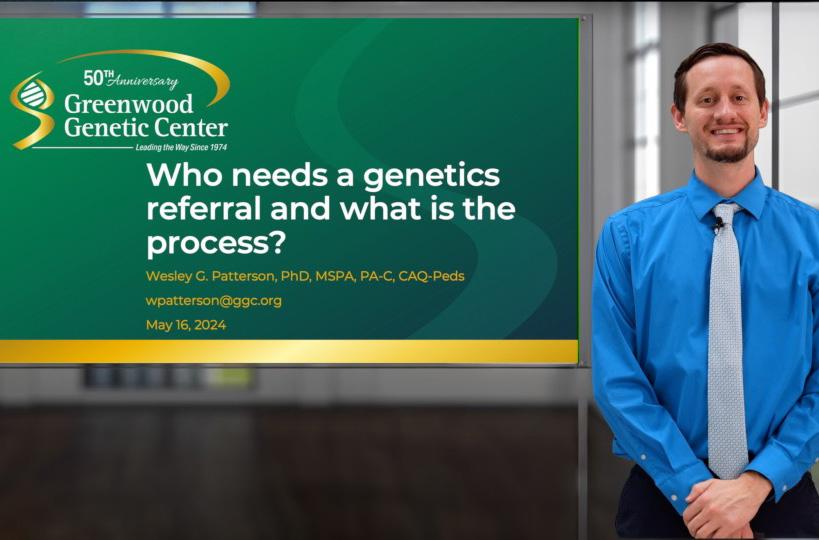
known for creating virtual communities of learners through videoconference technology and case-based learning, GGC aims to enhance access to genetic expertise locally and statewide.
The first two sessions will cover fundamental aspects such as ordering genetic testing and making referrals, and gradually delve into specific genetic disorders. The goal is to bridge the knowledge gap for non-genetics providers and foster an environment of collaborative learning.
“The ECHO project is designed to offer non-genetics providers the opportunity to build their understanding of the role genetics plays in medical practice and patient care,” says GGC’s Director of Education, Leta Tribble, PhD. “Through interactive virtual presentations, GGC experts will expand providers’ knowledge of the genetic testing and counseling assistance we can provide, and, in this era of precision medicine, how connecting with our clinical team
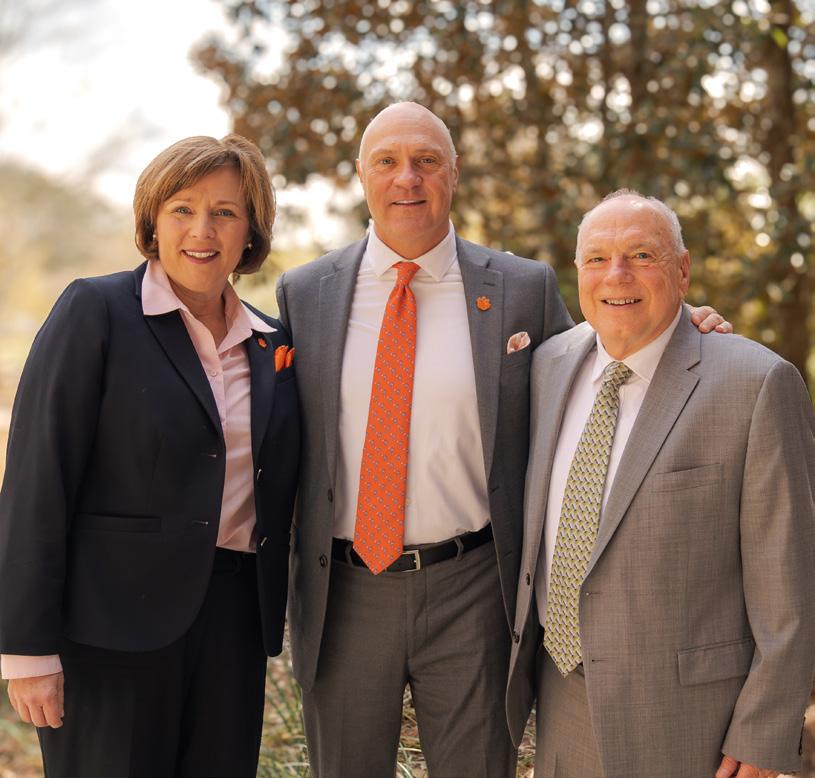
can improve patient care.”
“This unique project will engage nongenetics healthcare providers to get them more comfortable ordering and interpreting genetic testing,” says GGC Physician Assistant, Wesley Patterson, PhD (pictured above). “We are moving into an era of precision medicine where providers must take a genomic approach to patient care. As healthcare providers get more comfortable with genetic testing, they will utilize it more for patient care. In the end, it is all about increasing access to genetic services for all South Carolina residents.”
With the ECHO project, GGC is not only providing educational opportunities but also laying the foundation for enhanced collaboration and improved patient care through the integration of genetics into mainstream medical practice.
Interested healthcare providers can see the upcoming schedule and learn more at www.ggc.org/ECHO.
Clemson Unveils Plans for CHG
Clemson President Dr. Jim Clements (center) and College of Science Dean, Dr. Cynthia Young (left) visited GGC in March to share their planned expansion of the Clemson Center for Human Genetics (CHG) on the GGC Partnership Campus. This expansion is part of their Clemson Elevate strategic plan to double research at the University.
Clemson aims to add a second building in Greenwood, a 70,000 sq ft facility - triple the size of the first CHG building which opened in 2018 and has reached capacity. The new facility will house both wet and computational labs as well as a conference center. The expected timeline for construction is 2028-29.
Greenwood Genetic Center Newsletter 6
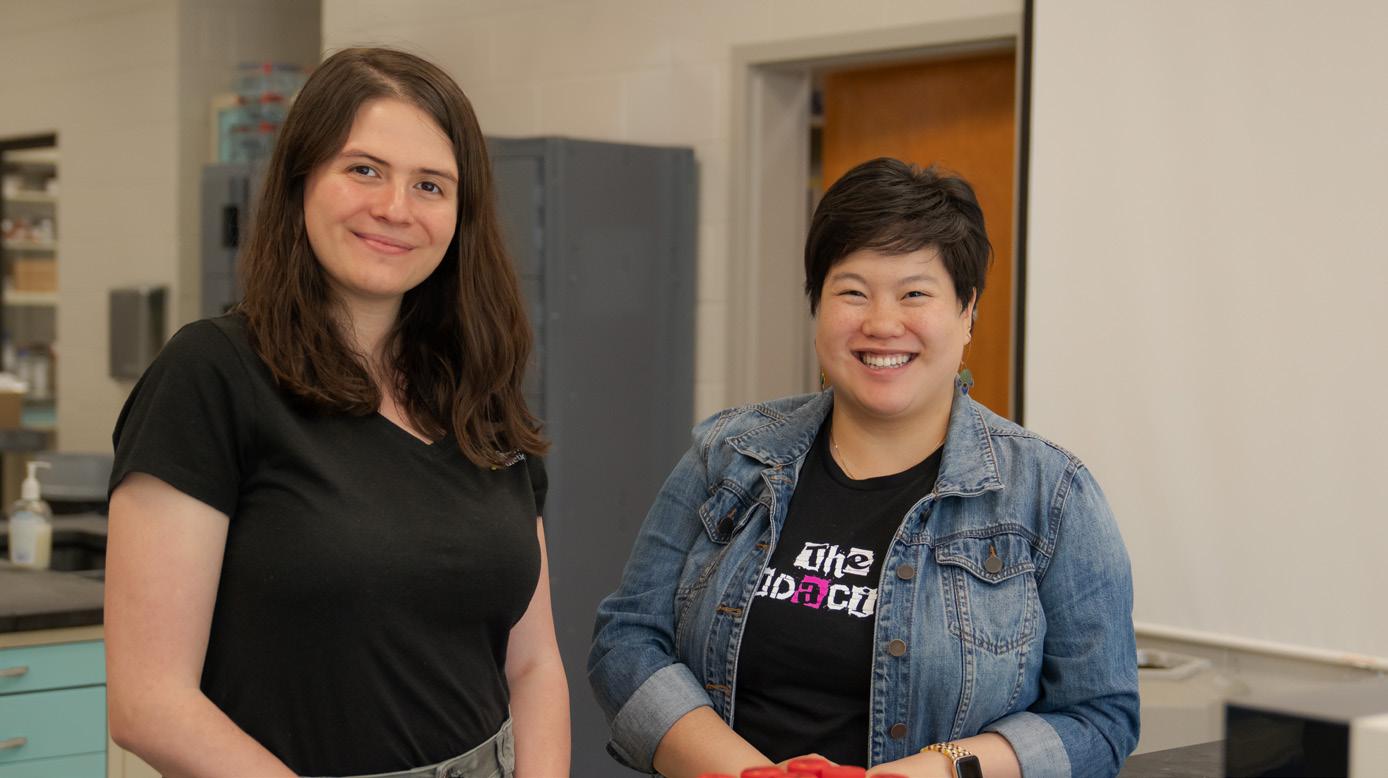
Instructor Swap
Alyssa Labdon (left), an instructor with GGC's Division of Education, was selected by the Mobile Laboratory Coalition (MLC) to participate in their inaugural Instructor Exchange Program. This program provides the opportunity for instructors from member organizations to exchange jobs for a week to observe curricula, methods, and best practices allowing instructors to enhance their own programs through learning about other successful organizations.
Labdon, who joined GGC in 2023, spent a week in May with BioBus New England based in Cambridge, Massachusetts. Dr. Alice Chou (right), of BioBus New England, worked with the GGC team in April on the Gene Machine mobile science laboratory and Helix Express van.
“I applied for the MLC Instructor Exchange Program because I believed this would be an amazing opportunity to not only grow as an instructor but to also gain a new perspective on mobile lab programs,” said Labdon. “My main goal with this exchange is to learn how to be more adaptive within a classroom setting so that we can bring the best experience possible to our students.”
GGC is a longtime member of MLC’s international community of traveling and laboratory-based education and outreach STEM programs. GGC and the Medical University of South Carolina are cohosting the MLC’s annual conference in Charleston in July where Labdon and other Instructor Exchange Program participants will share their experiences.
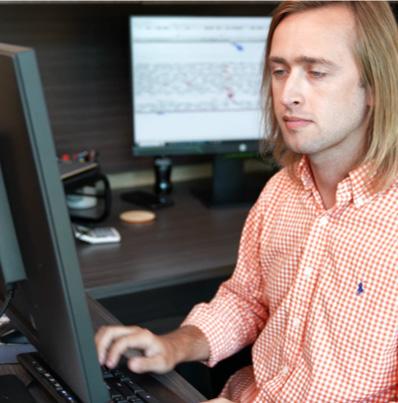
Employee Excellence
GGC employees regularly excel in their respective positions.
We are pleased to recognize the following employees for their hard work, excellence, and recent achievements...
Drew Lay (pictured above) was promoted to Lead Bioinformatics Specialist.
Emily Moore was promoted to Software Developer Team Lead.
Nisha Pandya, MS, CGC, achieved certification by the American Board of Genetic Counseling.
Nichole Simpson, CG(ASCP), achieved certification as a Cytogenetics Technologist by the American Society for Clinical Pathology.
GGC Wins Amazon Web Services IMAGINE Grant
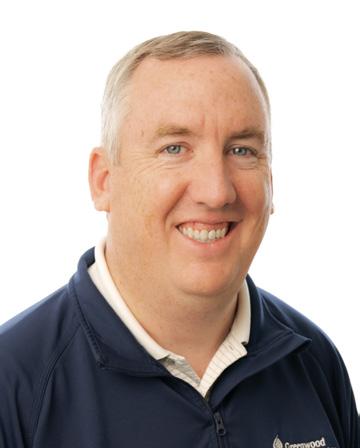
GGC was selected as a winner of an Amazon Web Services (AWS) IMAGINE Grant for nonprofit organizations who are using technology to solve the world’s most pressing challenges.
The grant will support GGC’s Precision Medicine Initiative to integrate 50 years of patient data from clinical encounters,
laboratory testing, and research studies to make it accessible, searchable, and actionable. The grant will also support the development of machine learning and artificial intelligence initiatives at the Center.
GGC will receive up to $50,000 in unrestricted funding, up to $30,000 in AWS Promotional Credits, and project implementation support.
“The advancements that will be supported by this award will allow us to identify patterns and commonly affected
patients, improve diagnostic rates using genomic data, and ultimately enhance our ability to diagnose and treat rare genetic disorders,” said Kevin Farren, GGC’s Director of Data Integration and Management.
Farren (pictured left) was invited to share GGC’s winning proposal as part of a panel discussion at the AWS re:Invent conference in Las Vegas.“We are grateful to AWS for investing in the future of genomic medicine and in the lives of our patients and their families.”
7 Summer 2024 | www.GCC.org
GGC Foundation Welcomes New Trustees
GGC Foundation trustees serve as mission ambassadors by cultivating, securing, and stewarding philanthropic funds that advance the Center’s mission.
The Greenwood Genetic Center (GGC) Foundation announced the appointment of three new members to its Board of Trustees in January.
Jimmell Felder, MD (left), of Greenwood, SC is a physician with board certification in both pediatrics and obesity medicine. After 17 years of practicing pediatrics, she is currently the Medical Director of Medical Affairs for Absolute Total Care and recently launched a medical weight management practice, New Creation Wellness, LLC.
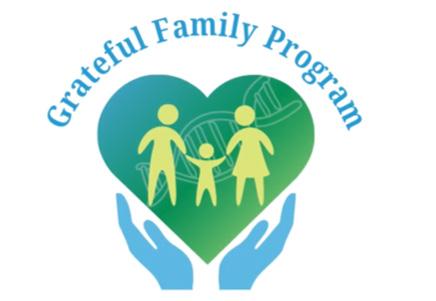
The GGC Foundation has launched the Grateful Family Program as a way for those who have experienced GGC's compassionate care and expertise firsthand to express their gratitude. By paying it forward, families can ensure that the next patient to walk through our doors has an opportunity to receive the same high-quality care and the answers they deserve.
Meet program chair and GGC mom, Helen Campbell, using the QR code below or visit ggc.org/ grateful-family to learn more.

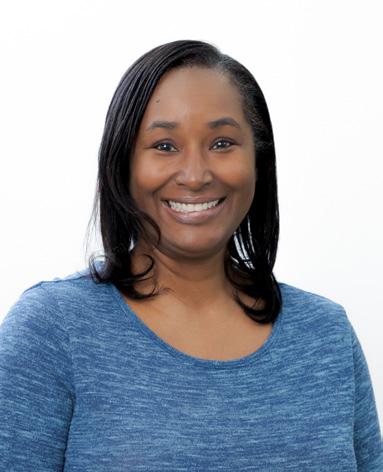
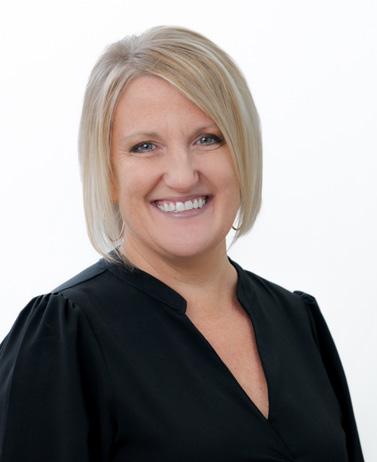
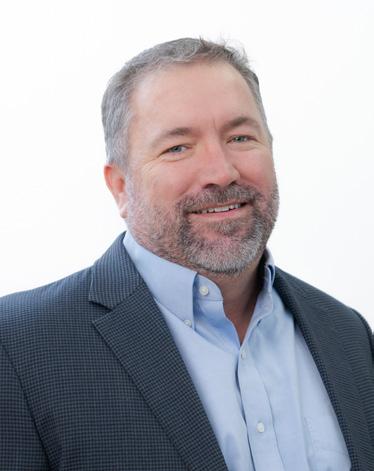
Erin Layland (center) of Greenwood, SC is a financial sales manager and Vice President with First Citizens Bank. She is very involved in the community serving on the board of numerous organizations including the Self Regional Foundation, Greenwood Performing Arts, and Ten at the Top.
Tommy Plumer (right) of Greenville, SC is Vice President of Sales for TD SYNNEX Corporation. He serves on the board of the University of South Florida UMatter Program for students with special needs and is a dedicated volunteer with Project
Hope Foundation. Tommy and his wife are the parents of two children including a son with autism spectrum disorder who has received services through GGC.
“We are grateful to these new trustees for offering their time to support the GGC Foundation,” said Ray Wilson, PhD, chair of the GGC Foundation Board of Trustees. “They each bring a passion for service to their communities and their unique talents will help bolster GGC’s significant impact on the patients and families that we serve.”
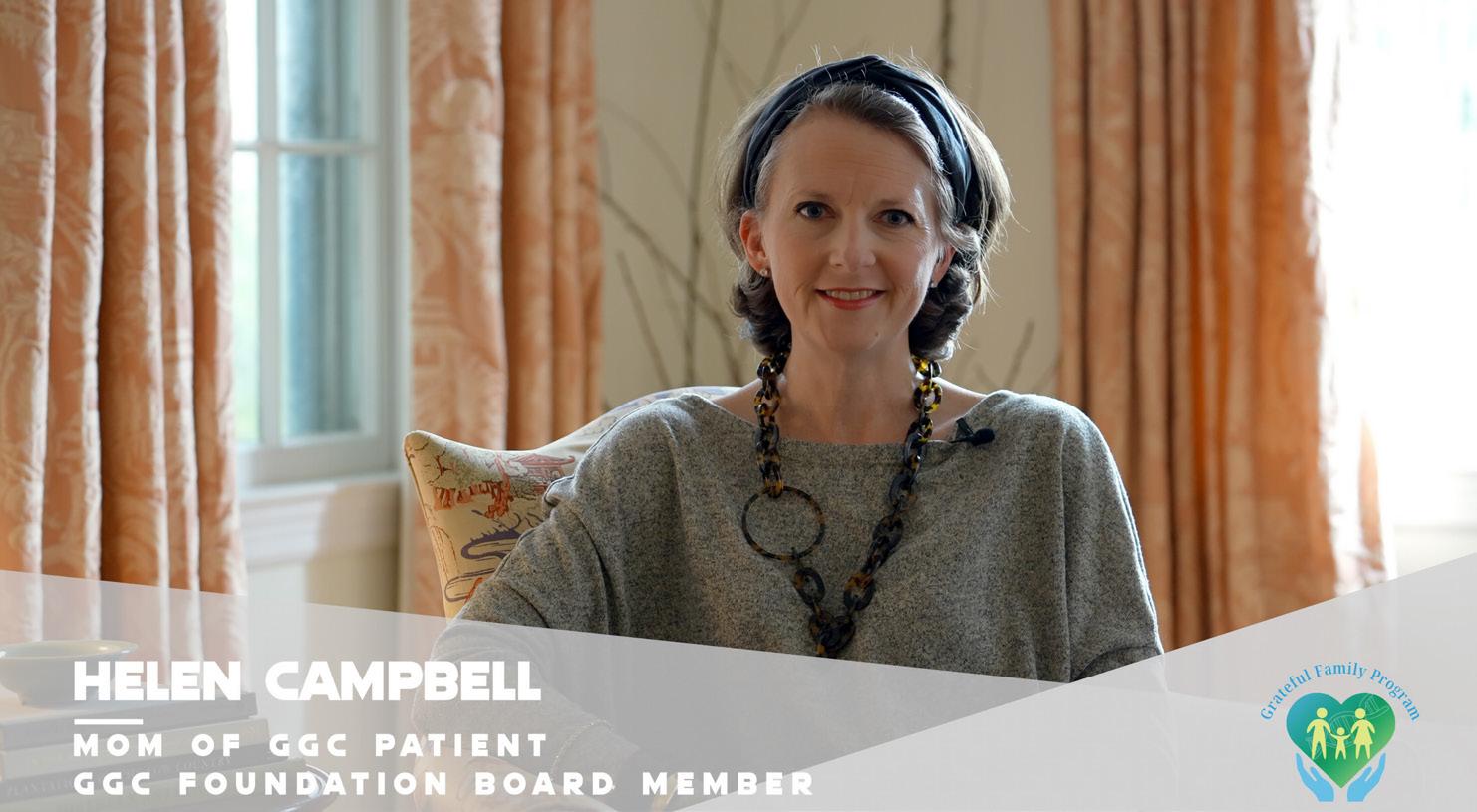
Share Your GGC Story
Honor Your GGC Caregiver
Start a Facebook Fundraiser
If you or a family member had a “Giving Greater Care” experience at GGC, sharing your story can help bring awareness to the Center and encourage other families who may be dealing with similar circumstances.
Make a gift to the GGC Foundation in honor of a member of the GGC team who made a difference in your life or went above and beyond for your family.
Starting a Facebook fundraiser is a wonderful way to share your family's story and increase awareness of GGC's mission while also contributing to the important work of the Center.
Greenwood Genetic Center Newsletter 8
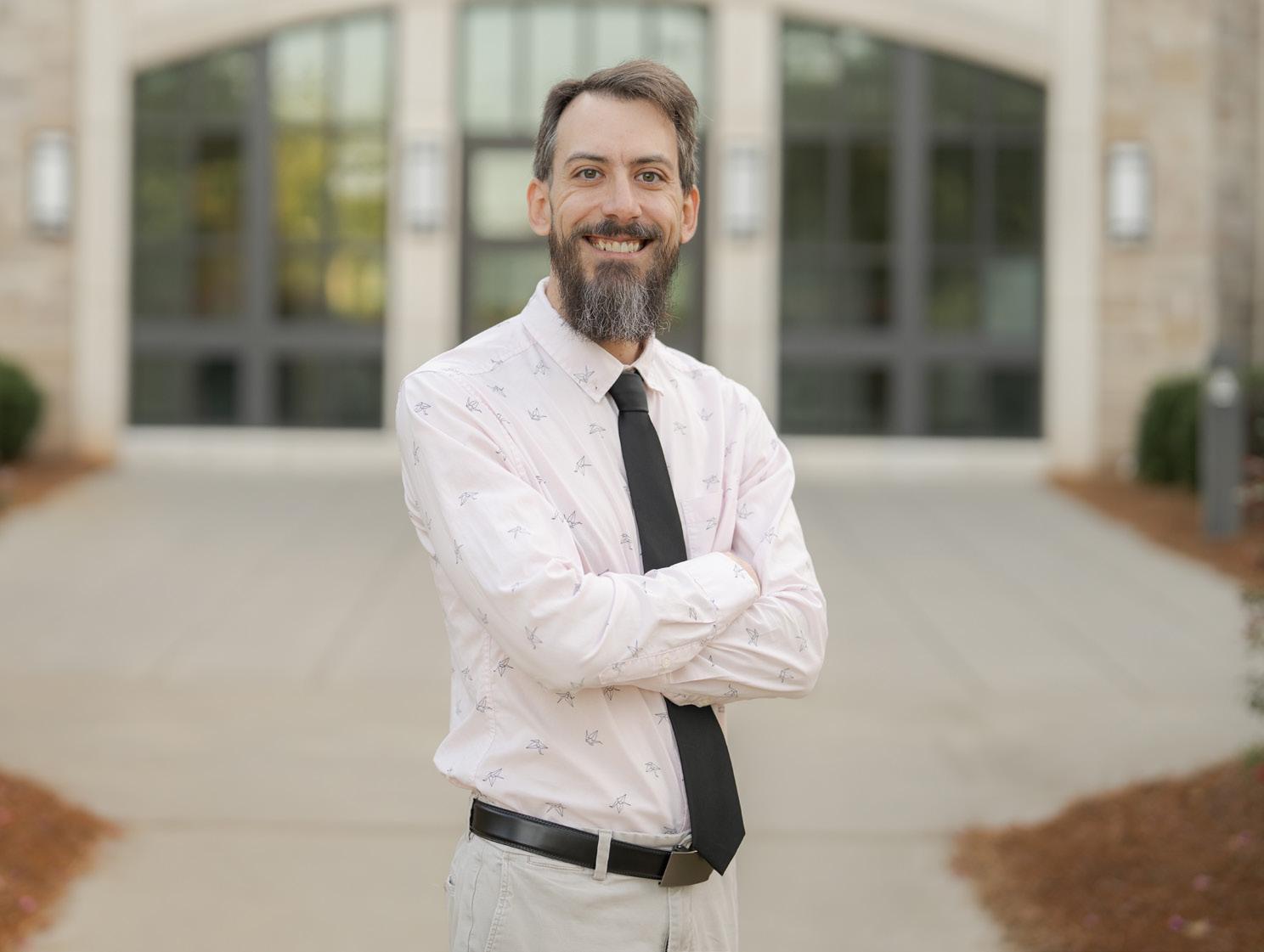
GGC's 'Signature' Test, Expands to v5
GGC is the only US lab to offer EpiSign, a unique test of epigenetic signatures providing diagnoses for patients around the world.
GGC launched EpiSign, a first-of-itskind genomic test, five years ago in collaboration with London Health Science Center in Ontario. Since then, GGC has evaluated over 2,000 patient samples for unique methylation signatures to help find genomic changes that are not identified through traditional genetic testing methods.
As experts in the only US lab to offer EpiSign, GGC's Matt Tedder, PhD, staff scientist, and Robin Fletcher, MS, CGC, laboratory genetic counselor, provide presentations to clinical teams all over the US to share how EpiSign can end what are often long and frustrating diagnostic odysseys for patients with rare genetic disorders or uncertain DNA test results.
How does EpiSign work?
Genetic disorders can be caused by a mutation or a variant within a gene's DNA sequence. However, genetic disorders can also result when a typical copy of a gene is simply not expressed correctly - maybe the gene is turned on when it shouldn't be or turned off when
it should be expressed.
Abnormal gene expression can be just as significant as a mutation within the gene, but it is much harder to detect.
This abnormal gene expression can often be identified in the lab by unique chemical tags called episignatures.
What's new with EpiSign?
In 2019, the original EpiSign test offered analysis for 16 genetic disorders. In 2024, GGC launched the fifth version which now tests for over 90 conditions.
A significant and novel addition to the current version of EpiSign extends beyond genetic disorders to a prenatal exposure. The EpiSign team has identified a unique signature present in individuals with Fetal Valproate syndrome, caused not by a genetic change, but by prenatal exposure to valproic acid, a drug used to prevent seizures and treat bipolar depression and migraines.
A recently published paper in Genetics
"While advancements in genetic testing have improved our ability to detect alterations in the genome, the identification of uncertain variants can be a frustrating experience that extends the diagnostic odyssey for the patient and their family. This can be further compounded by non-specific or broad clinical symptoms.
Episignature analysis has been a great resource for providing clarity in these instances, and the utility continues to improve with each version update."
-Matt Tedder, PhD
in Medicine summarized over 2,000 clinical cases finding that a diagnosis was identified in 19% of patients tested by the full EpiSign Complete test. Additionally, when a specific disorder was suspected, 32% of patients analyzed had a positive result.
This diagnostic yield is significant in giving answers when other tests have not.
Why does EpiSign keep changing?
As we learn more about gene expression and test more patients, new information about episignatures comes to light leading to the expansion of the test.
For example, using EpiSign v4, GGC tested a patient who had a variant of uncertain significance, but the test did not identify an episignature for the associated gene.
However, one addition to EpiSign v5 was another gene for which this patient also had an unexplained variant. The GGC team was able to reanalyze this patient's results (without a new blood draw) which was positive for this newly-added signature. This new result clarified this patient's diagnosis and ended the diagnostic odyssey for this family.
"Examples like these provide great motivation to continue improving EpiSign by growing the ability to diagnose new conditions," said Tedder.
9 Summer 2024 | www.GCC.org
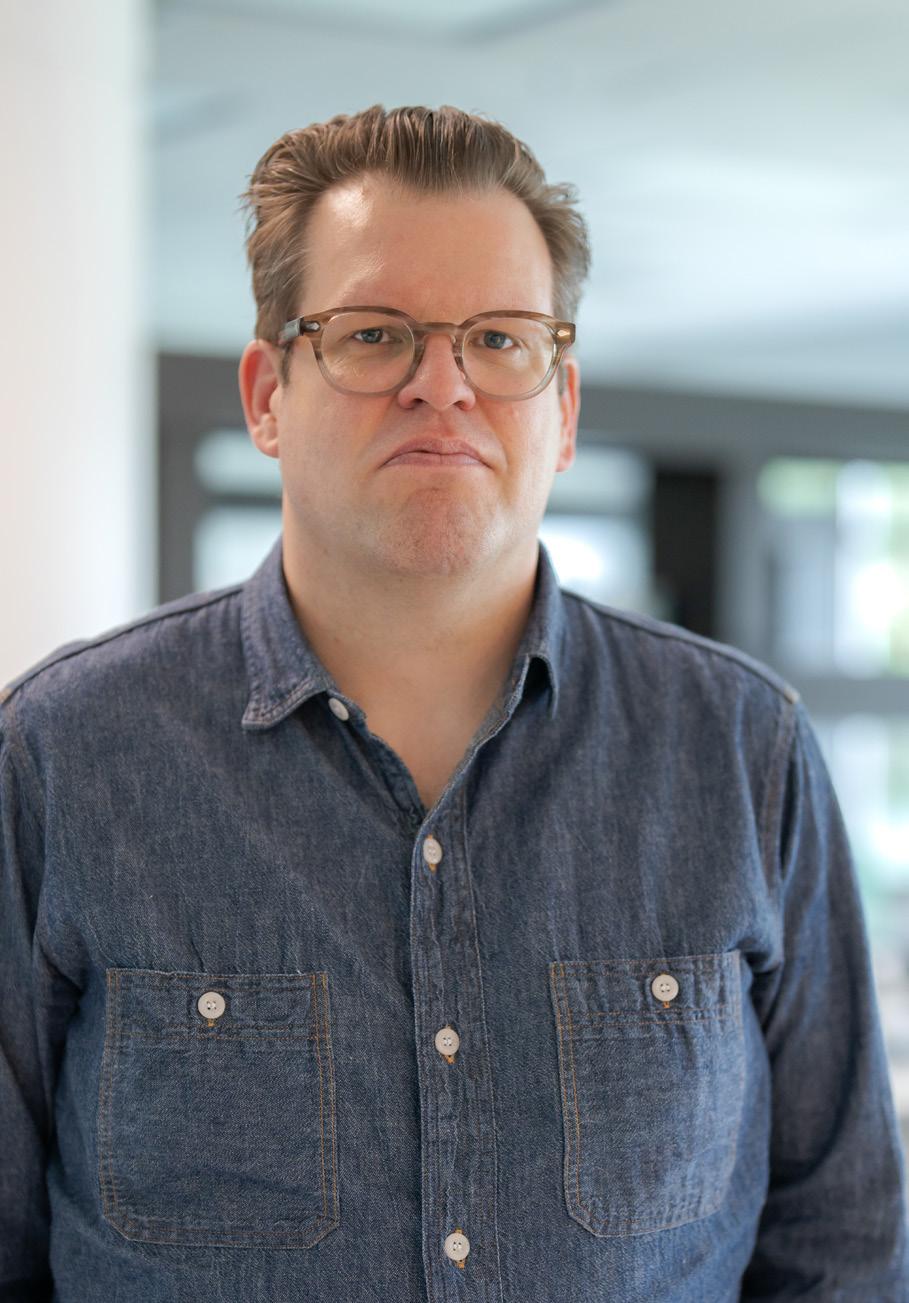
New Research Faculty Has His Eye on Innovation
Gavin Arno, PhD, joined GGC's Research Division in April as the Associate Director of Research with a focus on Innovation.
Arno is a prominent scientist in the field of ophthalmic genetics. He comes to GGC from joint roles at Moorfields Eye Hospital, UCL Institute of Ophthalmology, and Great Ormond Street Hospital For Children in London where over the past 12 years, his laboratory has made significant advances in the field of ophthalmic genetics and genomic analysis of inherited eye disease.
He has pioneered the use of whole genome sequencing (WGS) for inherited retinal disease (IRD) leading several novel IRD gene discovery projects.
At GGC, Dr. Arno works in collaboration with divisions across the GGC to advance our understanding of the impact of rare genetic variation on disease. His laboratory uses advanced novel technologies and is developing new methods of investigation to improve diagnostic rates and patient outcomes.
He is directly involved in the Center's Genomic Discovery Program and leads a COBRE (Center of Biomedical Research Excellence) grant project through GGC's collaboration with the Clemson Center for Human Genetics.
Care Reimagined
As GGC begins its second 50 years, the Center's Precision Medicine Initiative is the cornerstone of the future of genomic medicine.
The GGC Foundation's Care Reimagined campaign will fund the four critical pillars of this initiative - also called the 4 A's - Access, Analysis, Answers, and Action (see p.9)
Through this campaign we will break down barriers for children and adults who are uninsured or underinsured, enable GGC to diagnose patients who have had 'every test in the book' with no answer, and identify new treatments for patients based on understanding the impact of their specific genetic variant.
Care Reimagined aims to transform the delivery of genetic services by integrating a patient's personal genomic data with their individual care providing everyone with a genetic disorder access to affordable, personalized, and precise healthcare.
To learn more about Care Reimagined and how you can support this vital GGC initiative, view the Case for Support using the QR code below.

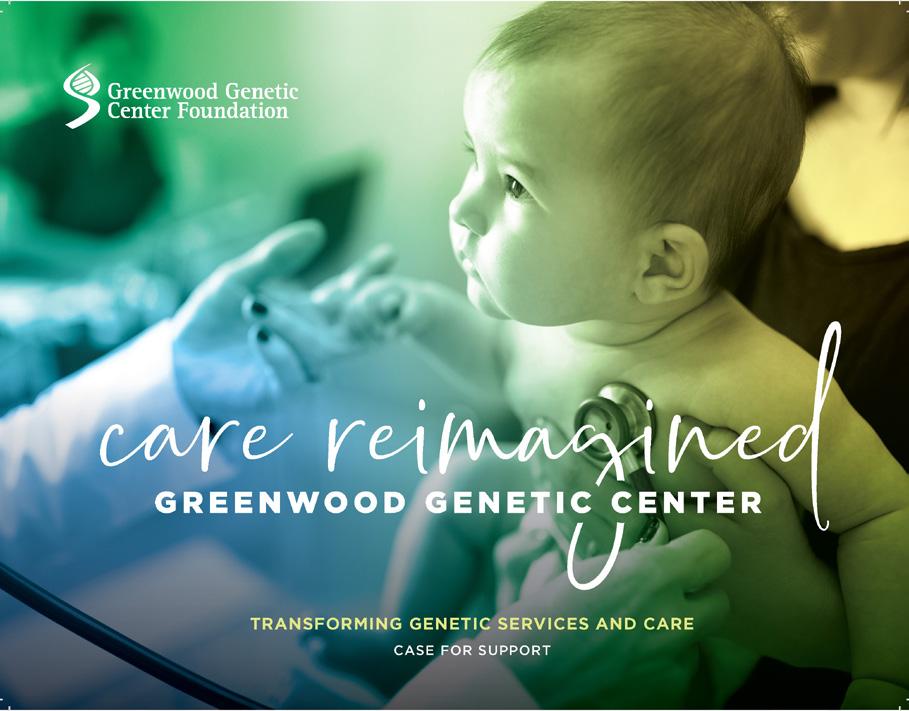
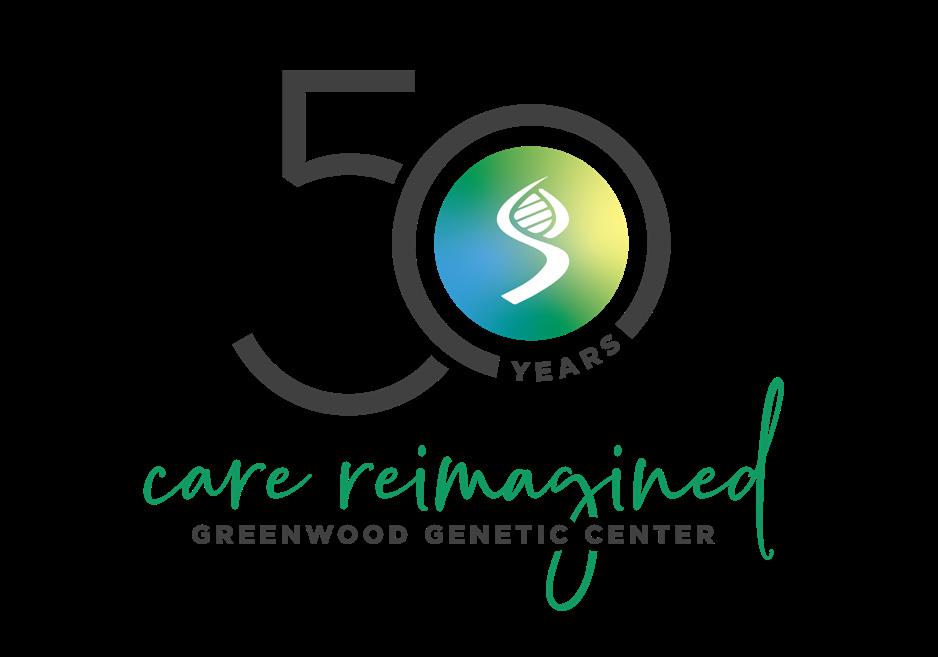
Greenwood Genetic Center Newsletter 10
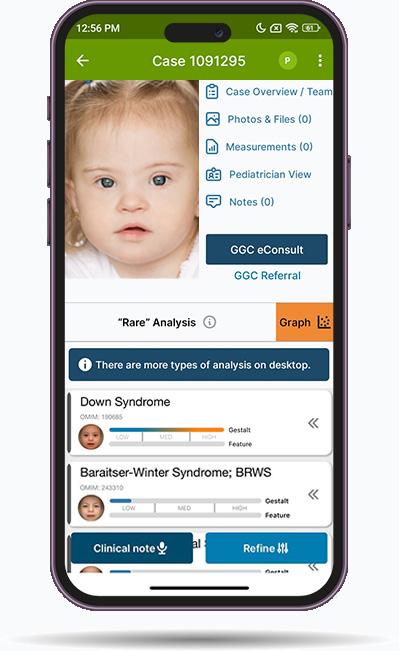
The Four Pillars of GGC's Care Reimagined Campaign
Access Action Answers Analysis
Improve access to genomic testing and services for South Carolinians through the GGC Cares Fund.
Generate and analyze genomic data through GGC's proving ground for new technologies and approaches to analyze data.
Diagnose each patient in a timely manner and identify potential treatments through GGC's Genomic Discovery Program.
Lead patients to a personalized treatment or therapy for their genetic condition.
Collaborating for Improved Access to Genetic Care
GGC and Face2Gene develop eConsult system for nongenetics providers.
The first of the four pillars of GGC's Precision Medicine Initiative is Access - and that's by design.
"Access is where it all starts," said Mike Lyons, MD, Director of Clinical Services at GGC, "If patients are to benefit from all of the great advances in genomic medicine, we must address the barriers that keep them from getting to us whether they be financial, geographic, awareness, or workforce."
eConsults
One way to expedite the genetic testing process and avoid long delays is through eConsults, asynchronous communications between nongenetics providers and GGC specialists. eConsults allow primary care providers or other specialists to ask questions regarding the need for a genetic consult and appropriate first-tier testing expediting the time to diagnosis.
GGC and Face2Gene
GGC recently launched a new eConsult platform using Face2Gene, a web-based application that allows clinicians to securely upload patient photos and clinical information and ask specific questions of GGC experts. "In two business days, the clinician will have their questions addressed and can initiate appropriate testing without waiting weeks or months for a genetic consultation," said Jessica Lopez, MS, CGC, a genetic counselor in GGC's Greenville office. "Our goal is that Face2Gene's robust platform will provide expert answers in a timely mannerpreventing unnecessary referrals, providing cost savings to the patient, and leading us to the correct diagnosis sooner."
GGC eConsults via Face2Gene are available for any SC provider through a free account in the Face2Gene mobile app or at Face2Gene.com.
For more information, visit GGC.org/eConsults.
Face2Gene's web-based app allows clinicians to explore genetic diagnoses and request an eConsult from GGC.
11 Summer 2024 | www.GCC.org
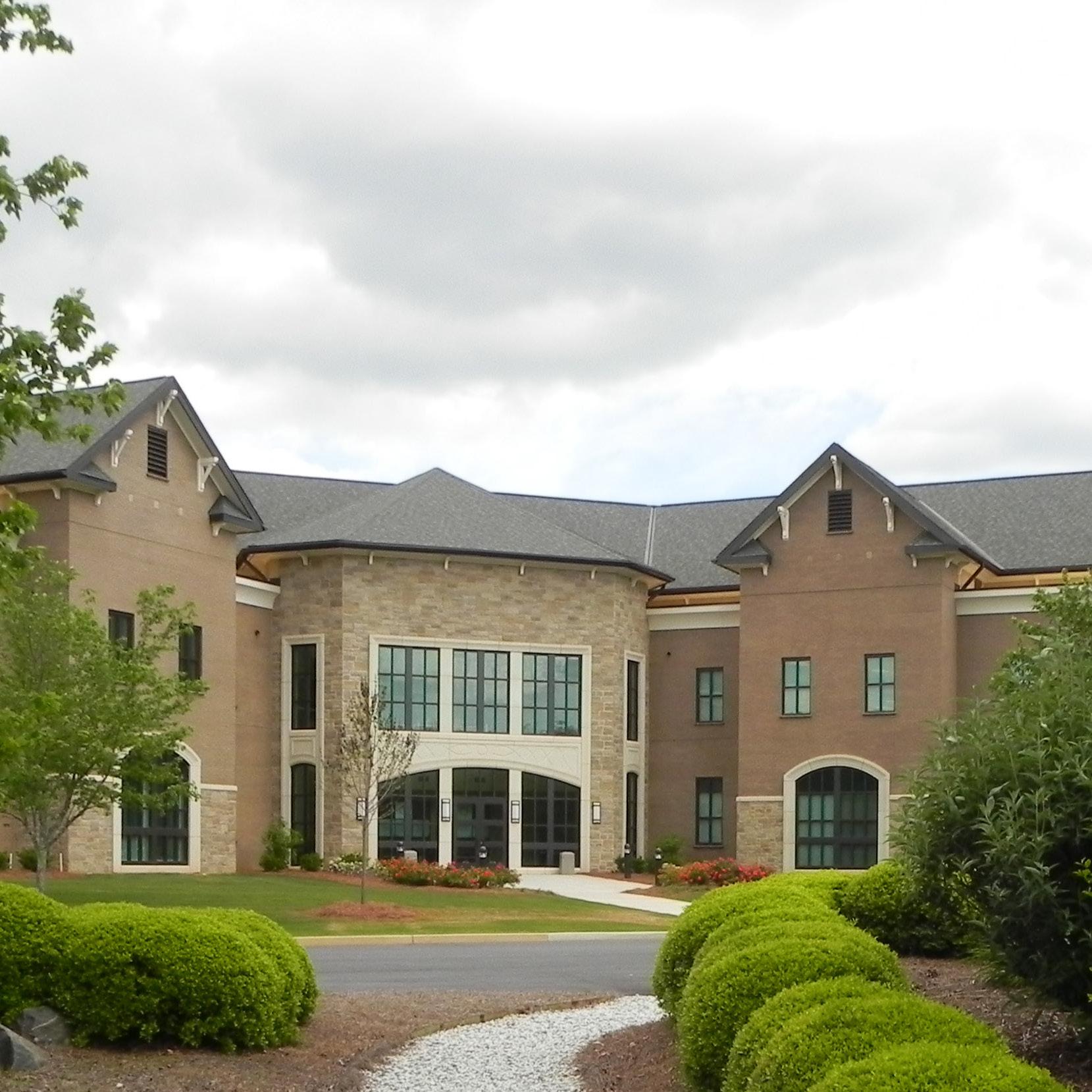
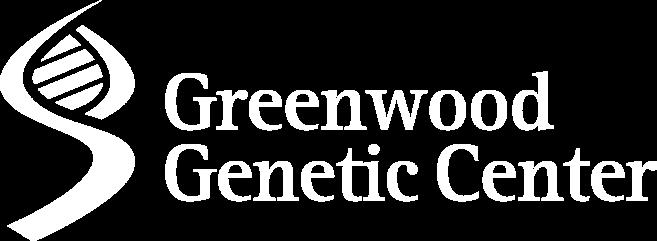
The Greenwood Genetic Center is a nonprofit organized to provide clinical genetic services, diagnostic laboratory testing, educational programs and materials, and research in the field of medical genetics. tel (864) 941-8100 toll free (888) 442-4363 www.GGC.org Copyright 2024 Greenwood Genetic Center, Inc. All rights reserved. Greenwood Genetic Center, Inc. is a registered 501(c)(3) corporation, Federal Tax ID #57-0604070. All donations are tax deductible. 106 Gregor Mendel Circle Greenwood, SC 29646 Non-Profit Org. US Postage PAID Greenwood, SC Permit #225 Celebrating .50 years! Where Compassion Inspires Progress





























